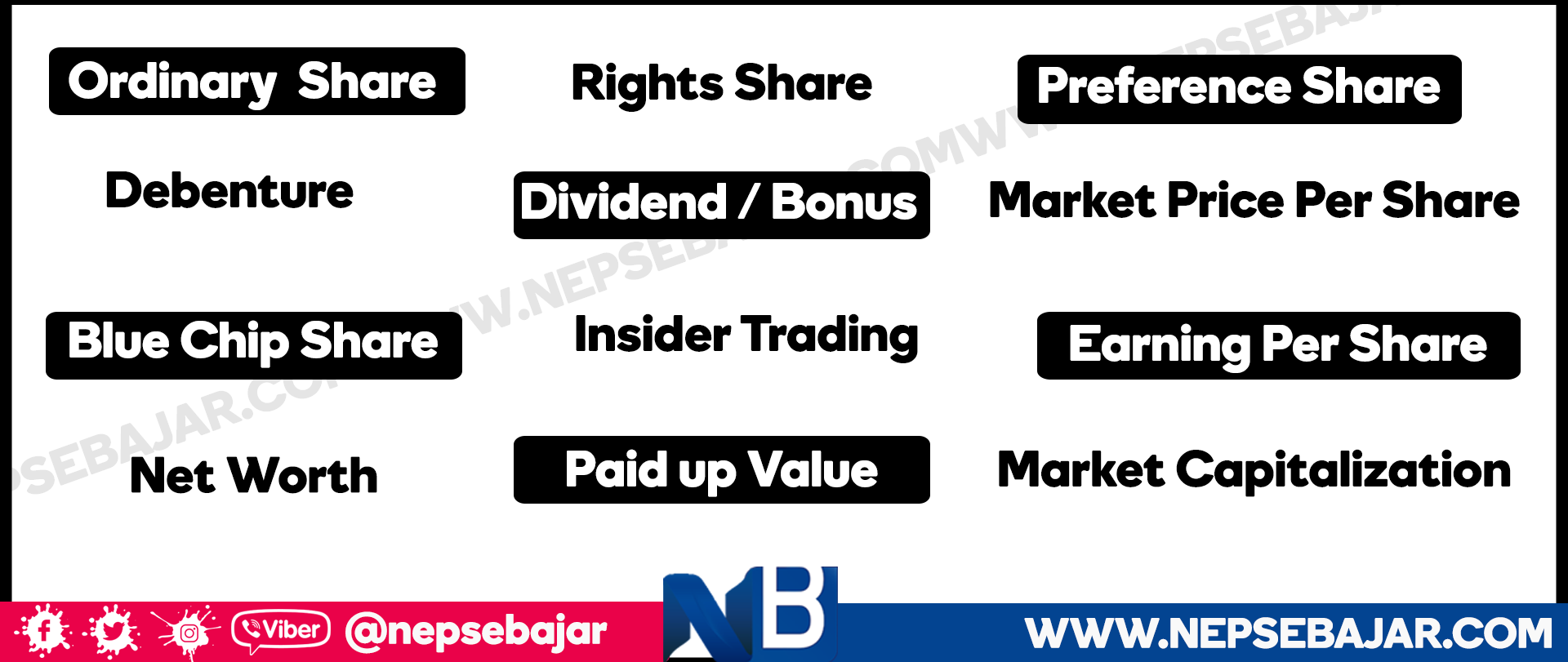Introduction:
Investing in the stock market can be a rewarding way to grow your wealth over time. However, to navigate this complex world successfully, it is essential to understand the terminology associated with investments. In this article, we will explore key investment terms and concepts in the context of Nepal, providing you with a comprehensive understanding of IPOs, FPOs, primary and secondary markets, bonus shares, dividends, rights shares, and the role of brokers.
-
Initial Public Offering (IPO):
An Initial Public Offering (IPO) refers to the process through which a private company offers its shares to the public for the first time. In Nepal, companies often opt for an IPO to raise capital for expansion, debt repayment, or other corporate purposes. During an IPO, shares are allocated to institutional investors and the general public through a book-building process or a fixed price method.
-
Follow-on Public Offering (FPO):
A Follow-on Public Offering (FPO) occurs when a publicly listed company issues additional shares to the general public after the IPO. Companies typically opt for FPOs to raise funds for business expansion, repay debt, or fulfill regulatory requirements. FPOs in Nepal can be conducted either through the book-building method or the fixed price method.
-
Primary Market:
The primary market is where new securities, such as IPOs and FPOs, are issued and traded for the first time. In Nepal, the Securities Board of Nepal (SEBON) regulates the primary market. Investors interested in buying shares during an IPO or FPO can apply through designated banks or financial institutions acting as issue managers.
-
Secondary Market:
The secondary market, also known as the stock market or the stock exchange, is where previously issued securities are bought and sold among investors. In Nepal, the Nepal Stock Exchange (NEPSE) is the primary secondary market for equity trading. Investors can trade shares of publicly listed companies through registered brokers.
-
Bonus Shares:
Bonus shares are additional shares given to existing shareholders of a company at no cost. Companies issue bonus shares to reward shareholders and enhance liquidity in the market. The issuance of bonus shares increases the total number of shares outstanding, thereby reducing the market price per share. In Nepal, bonus shares are distributed based on the company’s performance and the number of shares held by the investor.
-
Dividends:
Dividends represent a portion of a company’s profits distributed to its shareholders. Dividends are typically paid in cash, but they can also be in the form of additional shares (bonus shares). Companies in Nepal declare dividends based on their financial performance and the discretion of the board of directors. Dividends provide investors with a regular income stream and are an essential consideration for those seeking consistent returns.
-
Rights Shares:
Rights shares are additional shares offered to existing shareholders of a company at a discounted price. Companies issue rights shares to raise capital for various purposes such as expansion, debt reduction, or working capital requirements. In Nepal, rights shares are allotted to shareholders in proportion to their existing holdings, allowing them the option to purchase additional shares at a predetermined price.
-
Brokers:
Brokers act as intermediaries between investors and the stock market. They facilitate the buying and selling of securities on behalf of their clients. In Nepal, brokers must be registered with the NEPSE and regulated by the Securities Board of Nepal. Brokers provide services such as account opening, investment advice, trade execution, and portfolio management to individual and institutional investors.
Conclusion:
Understanding investment terminology is crucial for anyone looking to venture into the world of investing, especially in the context of Nepal. This article has provided an overview of key investment terms, including IPOs, FPOs, primary and secondary markets, bonus shares, dividends, rights shares, and the role of brokers. By grasping these concepts, you will be better equipped to navigate the Nepalese investment landscape and make informed decisions that align with your financial goals. Remember to conduct thorough research, seek professional advice, and stay updated with market trends to maximize your investment potential.


